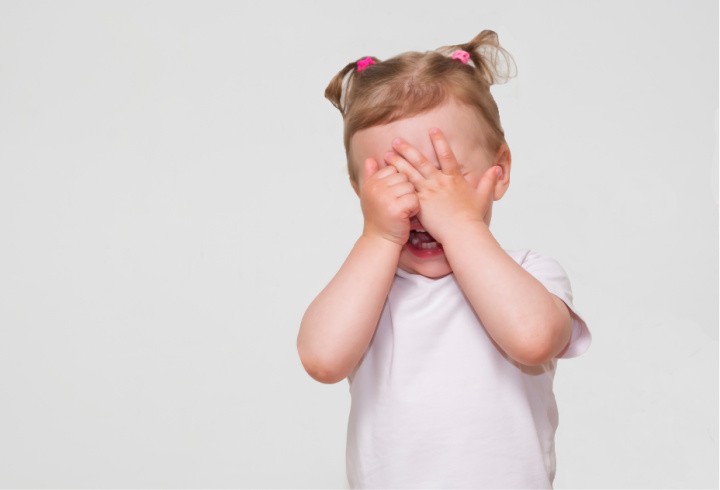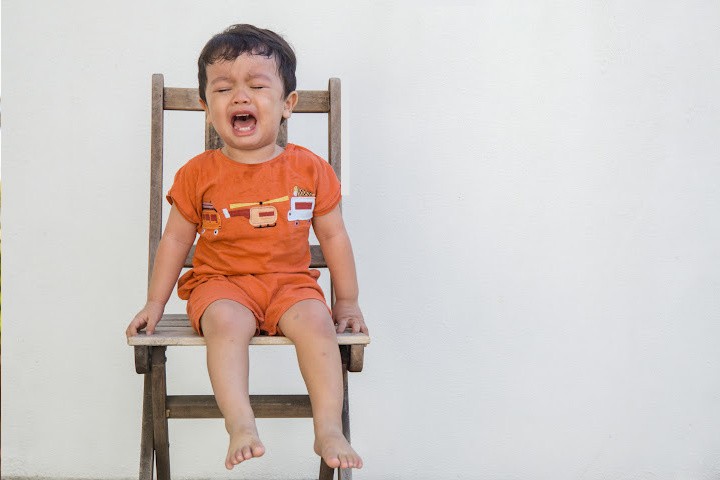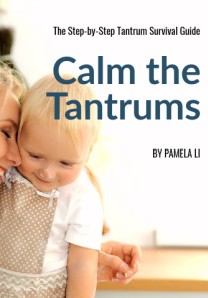3-Year-Old Temper Tantrums Getting Worse? Do This One Thing
Why Are Your 3-Year-Old’s Temper Tantrums Getting Worse
The simple answer is that your child lacks emotional regulation abilities.
As your child grows, they have more needs, and their frustration rises when those needs are not met. A combination of insufficient regulating skills and pent-up frustration leads to worse temper tantrums. 2 year old tantrums then turn into uncontrollable 3 year old meltdowns and power struggles.

Why Do Kids Lack Emotion Regulation Skills
Babies aren’t born with the ability to regulate their emotions. We must teach children the skills and provide the right environment for them to learn.
Many parents use behavioral techniques that actually aggravate temper tantrums. When tantrums become more frequent and aggressive, these parents use even harsher behavior control, resulting in a vicious coercive cycle.
Should Parents Worry
Emotional dysregulation underpins psychiatric disorders such as depression, anxiety and borderline personality disorder.
In the long run, both parents and children benefit from teaching children how to regulate their emotions adaptively.

Do This One Thing When Your Toddler’s Tantrums Are Getting Worse
The single most important thing parents should do to calm their toddler’s tantrums is:
Shift your mindset…
from “how do I stop the temper tantrum” to “how do I teach my kid self-regulation.”
By changing your mindset, your focus shifts from your own needs (to stop the tantrum) to those of your child (to learn how to self-regulate).
Changing this mindset also helps parents avoid the negative labeling trap.
When parents label meltdowns as tantrums, they forget that very young kids have emotional tantrums, not manipulative tantrums. When they believe their child is manipulating them or trying to get attention, they feel upset. That causes most parents to lose their calm and make things worse.
By changing the mindset and focusing on teaching self-control, rather than stopping tantrums, you and your child will both benefit.

How to help 3-year-olds develop self-regulation
Modeling
Children learn to regulate through observation. They are watching your reaction. The way you behave shows how you control your emotions.
If you cannot regulate your own emotions or stay calm, how can you expect a toddler with an underdeveloped brain and less life experience to do so?
It’s hard to remain calm when you’re dealing with a screaming toddler that won’t stop crying, but it’s a hundred times harder for your child.
Be responsive, warm and accepting
Research shows that a warm, responsive, and accepting parenting style is associated with better self-regulation in children. When parents are responsive and warm, children tend to seek help from the parent actively to regulate their emotions. These kids show better self-regulating skills.
Foster a positive family climate
Self-regulation is affected by the emotional climate of the family. A positive emotional environment is closely related to better self-regulation in children. When a child’s emotional climate is negative, coercive, or unpredictable, they are at a higher risk of becoming more emotionally reactive and less regulated.

How to deal with temper tantrums in the moment
Dealing with 3-year-old’s tantrums is similar to dealing with toddler tantrums. Here’s a detailed step-by-step guide: How To Deal With Toddler Tantrums
Here’s a summary of the 7 tips in that article:
- Use simple choices or distractions to divert attention.
- Do not reason with them.
- Help them restore emotional balance or avoid hurting anyone by holding or hugging.
- Stay calm, be positive but do not give in.
- Do not punish.
- Teach vocabularies so they can express themselves verbally.
- Look out for hunger, anger, loneliness and tiredness to prevent tantrums.

How To Prevent Your Three-Year-Old’s Temper Tantrums From Getting Worse
Avoid making these five parenting mistakes if your child’s temper tantrums are becoming worse.
1. Do not get angry
In order for little kids to learn self-regulation, they need a good role model.
When parents are furious at their kids for throwing tantrums, they are modeling what to do when things do not go their way.
A few slow, mindful breaths are the easiest and fastest way to calm ourselves so we don’t get worked up. Meditating every day can also help parents remain calm during stressful times.
2. Do not punish
Parents often believe a lack of discipline causes tantrums. Therefore, they try to discipline harder. Sadly, they mistake punishment for discipline. The word discipline means “to teach”, not “to punish”.
Coercive parenting doesn’t work. It’s proven by decades of studies.
Punishment is not the only way, nor is it a good way to teach. When we are kind and patient, we can teach a lot better than when we are harsh and mean. As opposed to stopping a tantrum, punishment escalates it.
Researchers have found that punishment negatively affects a child’s emotional regulation and promotes aggression, both of which worsen temper tantrums.
Young children cannot control their emotions by themselves. “Self-soothing” does not happen in a vacuum. Kids need the help of parents to learn to self-soothe.
3. Do not ignore
The most common advice parents receive regarding toddler tantrums is to ignore them.
A 3-year-old usually cannot control their emotions well enough to stop a tantrum on their own. The child in a tantrum is in emotional pain.
How would you feel if you were in pain and your loved ones ignored you or locked you in your room instead of helping you?
You’ll probably be angry, right?
Many tantruming kids feel the same way. The emotions become even more intense and aroused. Using their worse emotional skills, they try to calm a more aroused nervous system.
In many cases, parents think that ignoring a tantruming child will teach them how to self-soothe.
This is wishful thinking.
Emotion regulation doesn’t work that way.
It is possible that some 3-year-olds will stop having tantrums if you ignore them.
However, by leaving them on their own rather than helping them, the parent is modeling callousness toward other people’s suffering. They are essentially teaching kids they do not need to empathize with others… and then we wonder why our society is filled with people who lack empathy.
4. Do not give in
When you give in to the child’s demands, you are applying positive reinforcement to their tantrums.
The child is basically being taught to tantrum to get what they want. This is the teaching we want to avoid.
However, not giving in does not mean not paying attention. Kind and attentive parenting is possible without compromising.
5. Do not treat it as a “phase” and do nothing
Parents often refer to the terrible twos as the beginning of a “phase”. It is like the phase when a baby’s teeth fall out. There is no need for parents to do anything, as the phase will pass automatically.
The “phase” of terrible-twos passing depends heavily on how adults deal with it.
The 3-year-old’s temper tantrums are likely to get worse if they cannot learn to calm themselves, and if the parents continue to punish them.
During the preschool years, the child may become resentful, opposing the parents, which can lead to disruptions, antisocial conduct, and aggression. In severe cases, the child can develop oppositional defiance disorder or conduct disorder.
Final thoughts
There are so many “Don’ts” that it can be overwhelming. It may feel as if there were no Dos. If you have missed them, scroll back up to see the “Dos” sections above, especially the sections about how to help kids develop self-regulation and how to deal with temper tantrums in the moment.
For more help on calming tantrums, check out this step-by-step guide

-
This school year, its time to color outside of the lines. Not only did the last year mean huge restrictions for kids, but even before that, the increasing use of social media, extracurriculars, competitive schooling, and more mean
-
Bringing home a new baby carries a sense of joy and responsibility. We know that what happens in the first 3 to 5 years sets the scene for how a child feels about themselves, how they relate to others and how they succeed in life. Your rel
-
What Is Relational Aggression | Examples | Who | Child Development | Causes | Effects | How To Cope Relational aggression is a covert form of indirect aggression that often goes unnoticed by adults. Essentially, it is emotional bullying mostly amon


